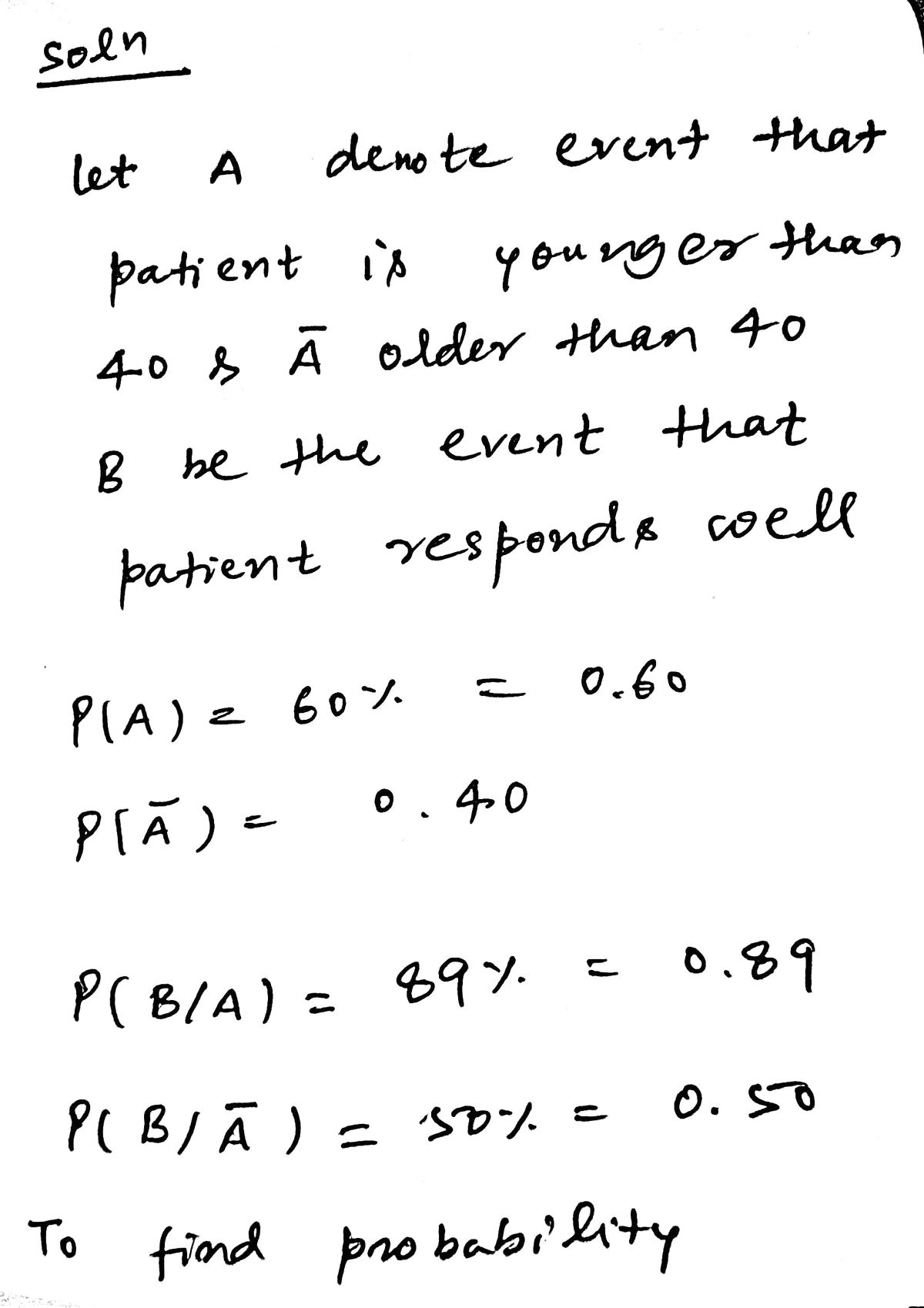d. In a clinical trial, the probability that a patient responds well to the treatment given they are younger than 40 is 89%, while the probability that a patient responds well to the treatment given that they are 40 years old or older is 50%. Suppose that 60% of all patients participating in this trial are younger than 40. Find the probability that: i. the patient's age is less than 40 given they responded well to the treatment; ii. the patient does not respond well, regardless of their age.
d. In a clinical trial, the probability that a patient responds well to the treatment given they are younger than 40 is 89%, while the probability that a patient responds well to the treatment given that they are 40 years old or older is 50%. Suppose that 60% of all patients participating in this trial are younger than 40. Find the probability that: i. the patient's age is less than 40 given they responded well to the treatment; ii. the patient does not respond well, regardless of their age.
A First Course in Probability (10th Edition)
10th Edition
ISBN:9780134753119
Author:Sheldon Ross
Publisher:Sheldon Ross
Chapter1: Combinatorial Analysis
Section: Chapter Questions
Problem 1.1P: a. How many different 7-place license plates are possible if the first 2 places are for letters and...
Related questions
Question

Transcribed Image Text:d. In a clinical trial, the probability that a patient responds well to the treatment given they are
younger than 40 is 89%, while the probability that a patient responds well to the treatment
given that they are 40 years old or older is 50%. Suppose that 60% of all patients participating in
this trial are younger than 40. Find the probability that:
i. the patient's age is less than 40 given they responded well to the treatment;
ii. the patient does not respond well, regardless of their age.
Expert Solution
Step 1

Step by step
Solved in 3 steps with 3 images

Recommended textbooks for you

A First Course in Probability (10th Edition)
Probability
ISBN:
9780134753119
Author:
Sheldon Ross
Publisher:
PEARSON


A First Course in Probability (10th Edition)
Probability
ISBN:
9780134753119
Author:
Sheldon Ross
Publisher:
PEARSON
